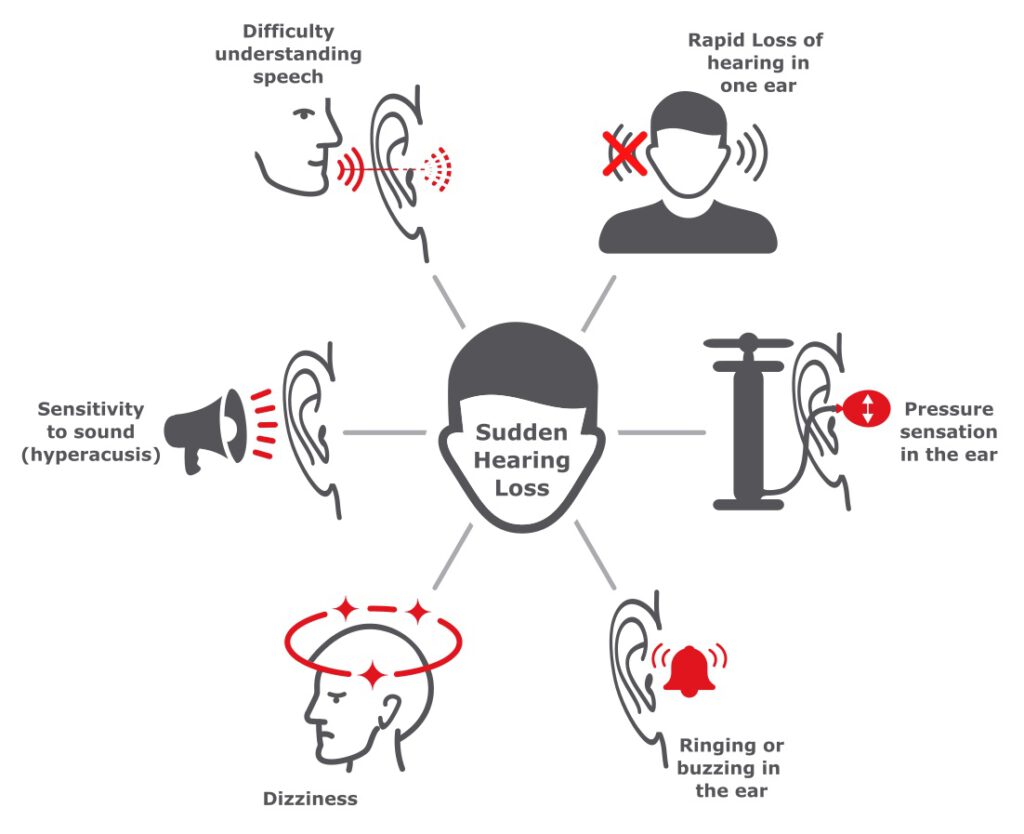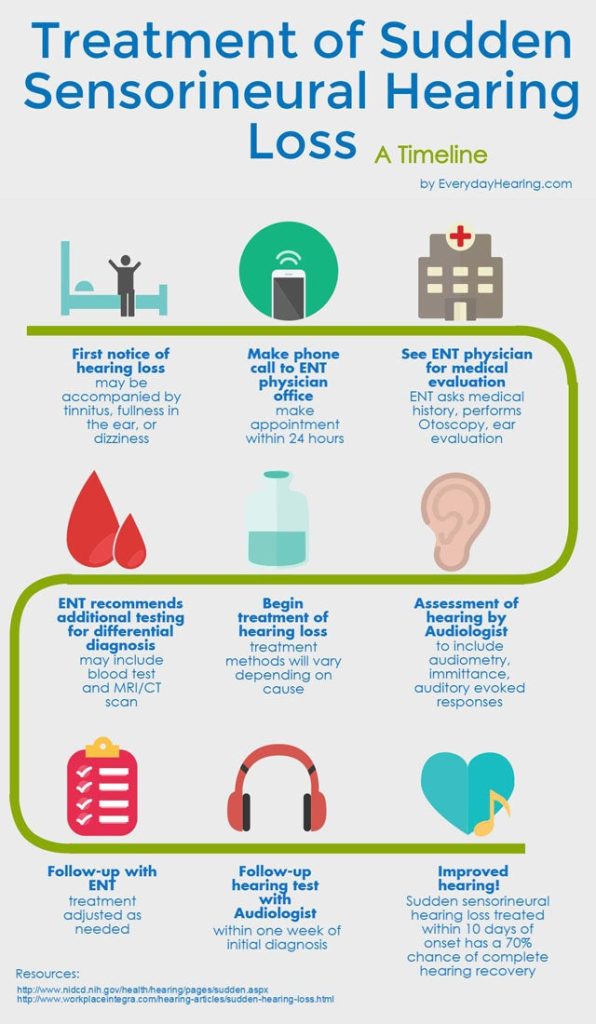

Sudden hearing changes can be a deeply concerning experience, significantly impacting your daily life. Whether it’s a gradual decline or a sudden, noticeable loss, understanding when and how to seek professional help is vital. This article will explore the key indicators, potential causes, and the steps to take when encountering sudden hearing changes. We’ll discuss how to distinguish between temporary and permanent hearing loss, the role of audiologists and ENT specialists, and the importance of timely intervention. We will also look at proactive measures to protect your hearing. We will also outline the potential treatment options and steps you can take to manage the condition and maintain a healthy lifestyle. The article will be structured with sections explaining common causes, symptoms, and when it’s necessary to consult a professional. It will provide clear steps and resources for finding appropriate medical care.
Recognizing the Signs of Sudden Hearing Changes
Sudden hearing changes, sometimes accompanied by other symptoms, can range from mild discomfort to significant hearing loss. Understanding the potential signs is crucial for taking timely action. Often, the initial symptom may be a slight decrease in hearing sensitivity in one or both ears. You may notice difficulty hearing in noisy environments, or find that certain sounds are muted or distorted. These changes can manifest in various ways. Some individuals experience a roaring or buzzing sensation in their ears (tinnitus), while others describe a feeling of fullness or pressure in their ears. These symptoms might be accompanied by vertigo, dizziness, or even facial pain or numbness. It is vital to recognize these potential indicators, as early intervention can be critical for preserving hearing ability.
Early Detection Matters:
Early detection is key to managing potential hearing loss. The sooner you identify the symptoms, the faster you can seek a proper diagnosis and treatment plan, potentially improving outcomes. While some cases of temporary hearing loss may resolve without intervention, others might indicate a more serious underlying condition. Identifying the root cause of the changes is essential for effective management, so proactive steps are necessary for a favorable outcome.
Differentiating Temporary and Permanent Hearing Loss
Understanding the difference between temporary and permanent hearing loss is crucial. Temporary hearing loss, while concerning, might often resolve on its own within a few days or weeks. In contrast, permanent hearing loss requires prompt attention. Symptoms persisting over several days or a change in the hearing in one or both ears may signal an urgent need to consult a healthcare professional. The determination of whether the hearing loss is temporary or permanent requires professional assessment and testing. Therefore, it is wise to take precautions and consult an audiologist or ENT specialist if hearing loss occurs.
Underlying Causes of Sudden Hearing Changes
Related Post : Common Causes of Hearing Loss That Often Go Unnoticed
Various factors can contribute to sudden hearing changes, ranging from common ailments to more serious medical conditions. Understanding these underlying causes helps in determining the appropriate course of action. Some of the common causes of sudden hearing loss include infections like otitis media or other upper respiratory tract infections. Also, certain medications, exposure to loud noises, or physical trauma to the head or ear canal can also induce sudden hearing loss. In some cases, circulatory problems, autoimmune disorders, or even tumors in the inner ear can contribute to sudden hearing loss. It’s important to note that many factors can affect the auditory system. It is imperative to seek professional medical guidance to determine the precise cause and the most suitable approach to recovery.
Infections and Other Medical Issues
Infectious diseases such as mumps, meningitis, or even a common cold can sometimes lead to temporary hearing loss. In addition, certain autoimmune disorders can affect the auditory system. Also, circulatory problems in the ear can cause a temporary or permanent loss of hearing. Therefore, it is important to ascertain the exact cause.
Traumatic Injuries
A head injury, a blow to the head, or even a severe ear infection can contribute to temporary or permanent hearing loss. Sudden noises and loud sounds may also impact hearing temporarily or permanently. Therefore, it is important to recognize the symptoms and to obtain medical help.
When to Consult a Professional
Seeking professional help is crucial for sudden hearing changes. Determining the appropriate course of action depends on the severity, duration, and potential causes of hearing loss. The intensity of the symptoms, such as the degree of hearing loss, associated symptoms, and the presence of any other health concerns, should determine whether you need to consult a healthcare professional. A doctor should be consulted for an evaluation and diagnosis if the hearing impairment is significant or persistent, if there are additional symptoms, or if the underlying cause is unknown. Procrastination can lead to worsening hearing problems.
Severity and Duration of Hearing Loss
Persistent, severe hearing loss or a sudden, marked decline in hearing ability is a clear indication to see a doctor. Factors like prolonged duration of the problem also highlight the need for immediate medical attention. If you notice hearing loss continuing for more than a few days, it is imperative to contact your healthcare professional. Furthermore, if other symptoms, such as dizziness, vertigo, or facial numbness, accompany the hearing loss, seeking medical advice promptly is paramount.
Underlying Conditions
If you have underlying health conditions such as autoimmune disorders, circulatory problems, or known risk factors for hearing loss, a medical evaluation is recommended in case of any hearing loss. It’s important to be proactive and get medical assistance immediately.
Diagnosis and Treatment Options
A proper diagnosis for sudden hearing changes is essential to determine the underlying cause and initiate the most effective treatment strategy. This often involves a comprehensive evaluation performed by a qualified audiologist or an Ear, Nose, and Throat (ENT) specialist. This evaluation may include a complete medical history, physical examination of the ears, and various hearing tests to assess hearing function. The treatment will vary depending on the specific cause of the sudden hearing loss. Some cases may require medication, while others may involve hearing aids or other assistive devices.
Hearing Tests and Evaluations
Audiologists are qualified professionals to perform various hearing tests to evaluate your hearing capabilities. These hearing tests often include pure-tone audiometry, speech audiometry, and tympanometry. The tests help to determine the degree and nature of hearing loss. Based on the test results, the audiologist can recommend further investigations if necessary.
Potential Treatments
The treatment for sudden hearing loss varies based on the cause. In some cases, treating the underlying infection or condition can resolve the hearing loss. In other cases, hearing aids, other assistive devices, or surgical intervention might be recommended. Prompt and accurate diagnosis is crucial for selecting the most effective treatment plan. It’s recommended to follow the audiologist or ENT specialist’s recommendations diligently for optimal results.
Proactive Measures for Hearing Protection
Protecting your hearing is crucial for long-term health and well-being. Implementing proactive measures can help prevent sudden hearing changes. These methods include avoiding exposure to excessively loud noise, using earplugs or earmuffs in noisy environments, and maintaining a healthy lifestyle. These actions can significantly lessen your risk of hearing loss.
Noise Exposure and Hearing Protection
Limiting exposure to loud noises and using ear protection are essential ways to protect your hearing. Loud noises over time can permanently damage your hearing and contribute to permanent hearing loss. If your work or hobbies involve loud noises, ensuring hearing safety is critical. Also, be mindful of loud music and other noise exposures.
Healthy Lifestyle Choices
A healthy lifestyle, including a balanced diet and regular exercise, can promote overall health and potentially reduce risks associated with hearing changes. These habits can reduce or mitigate various underlying conditions that might impact hearing health. In addition, quitting smoking, and managing other health conditions, can help ensure good ear health.
In conclusion, recognizing sudden hearing changes and seeking professional help promptly is crucial for preserving hearing health and avoiding potential complications. A thorough evaluation by an audiologist or ENT specialist can pinpoint the underlying cause and recommend the most effective course of treatment. By understanding the signs, symptoms, and circumstances surrounding sudden hearing loss, individuals can take proactive steps to protect their hearing and improve their quality of life. Schedule an appointment today for a hearing evaluation if you experience sudden hearing loss or related symptoms.